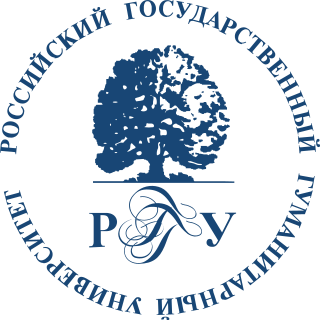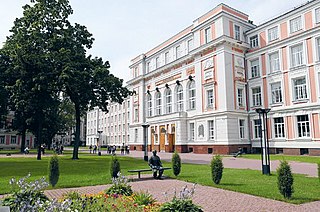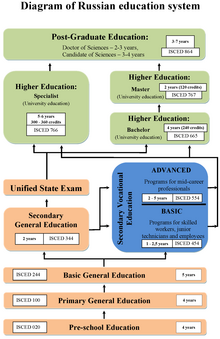
The history of Russia begins with the histories of the East Slavs. The traditional start date of specifically Russian history is the establishment of the Rus' state in the north in 862, ruled by Varangians. In 882, Prince Oleg of Novgorod seized Kiev, uniting the northern and southern lands of the Eastern Slavs under one authority, moving the governance center to Kiev by the end of the 10th century, and maintaining northern and southern parts with significant autonomy from each other. The state adopted Christianity from the Byzantine Empire in 988, beginning the synthesis of Byzantine and Slavic cultures that defined Russian culture for the next millennium. Kievan Rus' ultimately disintegrated as a state due to the Mongol invasions in 1237–1240. After the 13th century, Moscow emerged as a significant political and cultural force, driving the unification of Russian territories. By the end of the 15th century, many of the petty principalities around Moscow had been united with the Grand Duchy of Moscow, which took full control of its own sovereignty under Ivan the Great.

The Soviet Union, officially the Union of Soviet Socialist Republics (USSR), was a transcontinental country that spanned much of Eurasia from 1922 to 1991. It was a successor state to the Russian Empire that was nominally organized as a federal union of fifteen national republics, the largest and most populous of which was the Russian SFSR; in practice both its government and economy were highly centralized until its final years. As a one-party state governed by the Communist Party of the Soviet Union, it was a flagship communist state.

Human rights in the Soviet Union were severely limited. The Soviet Union was a totalitarian state from 1927 until 1953 and a one-party state until 1990. Freedom of speech was suppressed and dissent was punished. Independent political activities were not tolerated, whether they involved participation in free labor unions, private corporations, independent churches or opposition political parties. The citizens' freedom of movement was limited both inside and outside the country.

The Great Purge, or the Great Terror, also known as the Year of '37 and the Yezhovshchina, was Soviet General Secretary Joseph Stalin's campaign to consolidate power over the Communist Party of the Soviet Union and Soviet state. The purges also sought to remove the remaining influence of Leon Trotsky. The term great purge, an allusion to the French Revolution's Reign of Terror, was popularized by the historian Robert Conquest in his 1968 book The Great Terror.

Moscow State University is a public research university in Moscow, Russia.

Russification, or Russianization, is a form of cultural assimilation in which non-Russians, whether involuntarily or voluntarily, give up their culture and language in favor of the Russian culture and the Russian language.

Likbez was a campaign of eradication of illiteracy in Soviet Russia and the Soviet Union in the 1920s and 1930s. The term was also used for various schools and courses established during the campaign. Nowadays, this term is sometimes used in Russian as a slang for teaching an unprepared audience the basic concepts of any science, process or phenomenon.

Throughout Russian history famines, droughts and crop failures occurred on the territory of Russia, the Russian Empire and the USSR on more or less regular basis. From the beginning of the 11th to the end of the 16th century, on the territory of Russia for every century there were 8 crop failures, which were repeated every 13 years, sometimes causing prolonged famine in a significant territory. The causes of the famine were different, from natural and economic and political crises; for example, the Great Famine of 1931–1933, colloquially called the Holodomor, the cause of which was the collectivization policy in the USSR, which affected the territory of the Volga region in Russia, Ukraine and Kazakhstan.

The Russian State University for the Humanities, is a university in Moscow, Russia with over 25,000 students. It was created in 1991 as the result of the merger of the Moscow Urban University of the People and the Moscow State University for History and Archives.
Neo-Stalinism is the promotion of positive views of Joseph Stalin's role in history, the partial re-establishing of Stalin's policies on certain or all issues, and nostalgia for the Stalinist period. Neo-Stalinism overlaps significantly with neo-Sovietism and Soviet nostalgia. Various definitions of the term have been given over the years.

Gabriel Gorodetsky is an Israeli academic who is the Quondam Fellow of All Souls College, Oxford, and emeritus professor of history at Tel Aviv University. Gorodetsky studied History and Russian Studies at the Hebrew University in Jerusalem and went on to obtain his Ph.D degree under the supervision of British historian E. H. Carr in Oxford. He was the director of the Cummings Center for Russian Studies at Tel Aviv University from 1991–2007. He has been a visiting fellow of St. Antony's College in Oxford in 1979 and in 1993, of the Woodrow Wilson International Center for Scholars in Washington in 1986, of All Souls in Oxford in 2006, and a visiting scholar at the Institute for Advanced Study in Princeton. Gorodetsky was also a visiting professor at the universities of Munich and Cologne, and at the Central European University in Budapest. In 2010 Gorodetsky received an honorary doctorate from the Russian State University for the Humanities in Moscow.

Russian nationalism is a form of nationalism that promotes Russian cultural identity and unity. Russian nationalism first rose to prominence as a Pan-Slavic enterprise during the 19th century Russian Empire, and was repressed during the early Bolshevik rule. Russian nationalism was briefly revived through the policies of Joseph Stalin during and after the Second World War, which shared many resemblances with the worldview of early Eurasianist ideologues.

Jack Foust Matlock Jr. is an American former ambassador, career Foreign Service Officer, teacher, historian, and linguist. He was a specialist in Soviet affairs during some of the most tumultuous years of the Cold War, and served as the U.S. Ambassador to the Soviet Union from 1987 to 1991.

Ronald Grigor Suny is an American-Armenian historian and political scientist. Suny is the William H. Sewell Jr. Distinguished University Professor of History Emeritus at the University of Michigan and served as director of the Eisenberg Institute for Historical Studies, 2009 to 2012 and was the Charles Tilly Collegiate Professor of Social and Political History at the University of Michigan from 2005 to 2015, William H. Sewell Jr. Distinguished University Professor of History (2015–2022), and is Emeritus Professor of political science and history at the University of Chicago.

The Russian University of Transport (RUT (MIIT); Russian: «Российский университет транспорта», РУТ (МИИТ)), officially the Autonomous Educational Institution of Higher Education "Russian University of transport" (Russian: Федеральное государственное автономное образовательное учреждение высшего образования "Российский университет транспорта") is a public university founded in 1896 and headquartered in Moscow, Russia. Along with its main campus located in the capital, the university maintains one other regional campus in Sochi.
Patricia Kennedy Grimsted is a historian focused on the dispossession and restitution of cultural materials during and after World War II. She is a leading authority on archives in the former Soviet Union and its successor states.

The social phenomenon of nostalgia for the era of the Soviet Union, can include its politics, its society, its culture and cultural artifacts, its superpower status, or simply its aesthetics.
This is a select bibliography of post-World War II English-language books and journal articles about Stalinism and the Stalinist era of Soviet history. Book entries have references to journal reviews about them when helpful and available. Additional bibliographies can be found in many of the book-length works listed below.
Derussification is a process or public policy in different states of the former Russian Empire and the Soviet Union or certain parts of them, aimed at restoring national identity of indigenous peoples: their language, culture and historical memory, lost due to Russification. The term may also refer to the marginalization of the Russian language, culture and other attributes of the Russian-speaking society through the promotion of other, usually autochthonous, languages and cultures.















